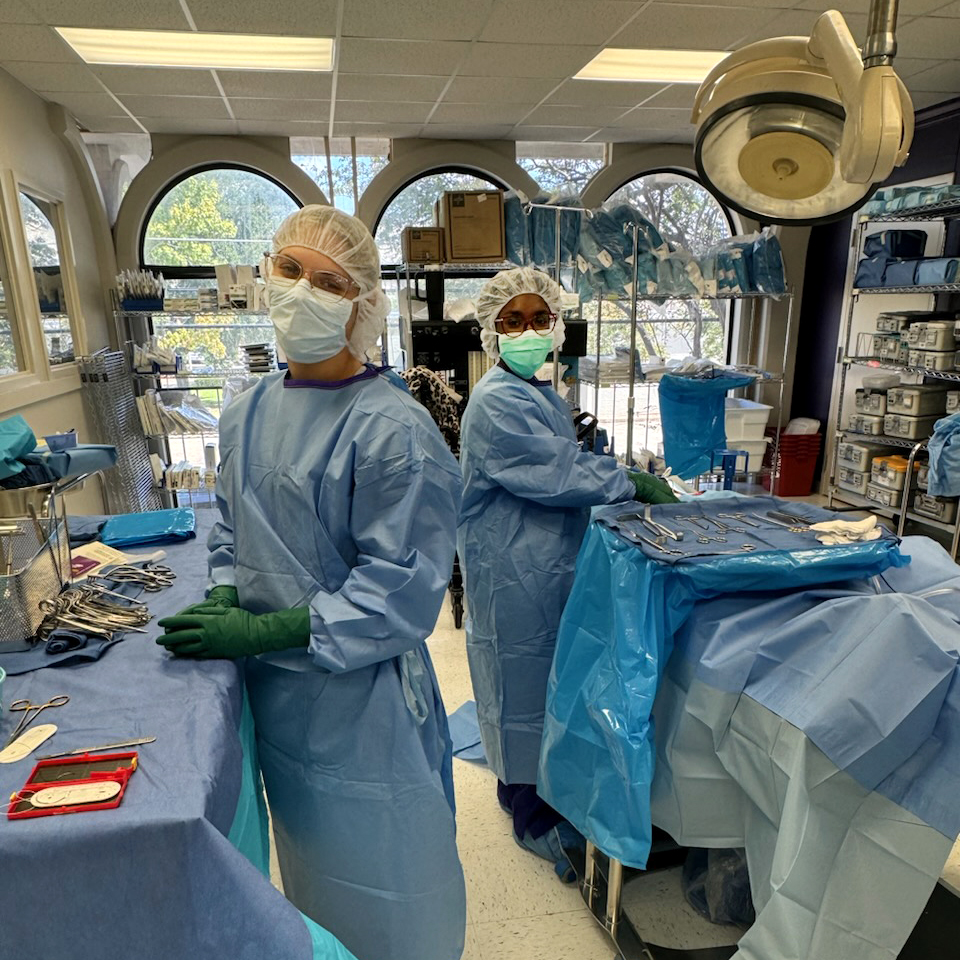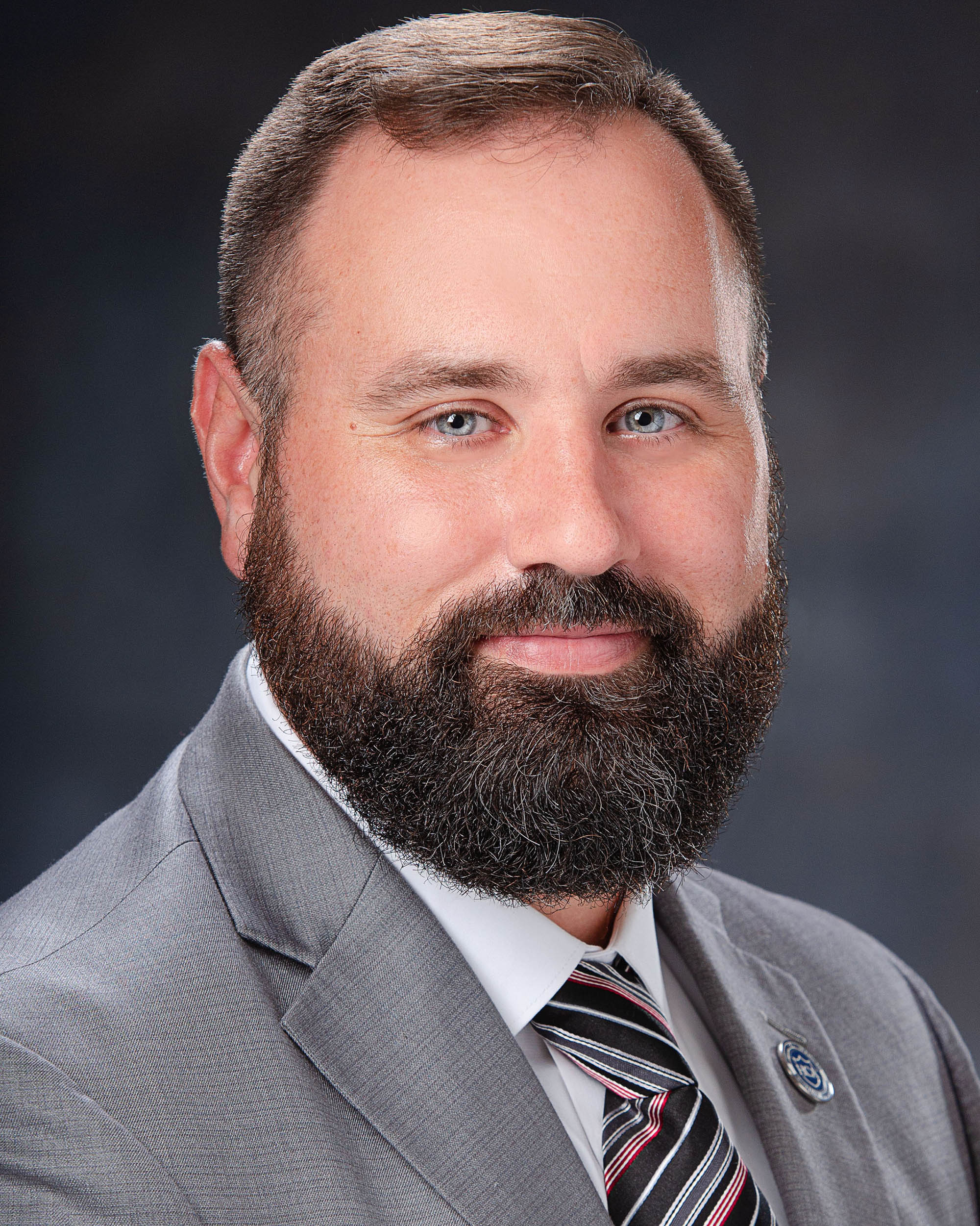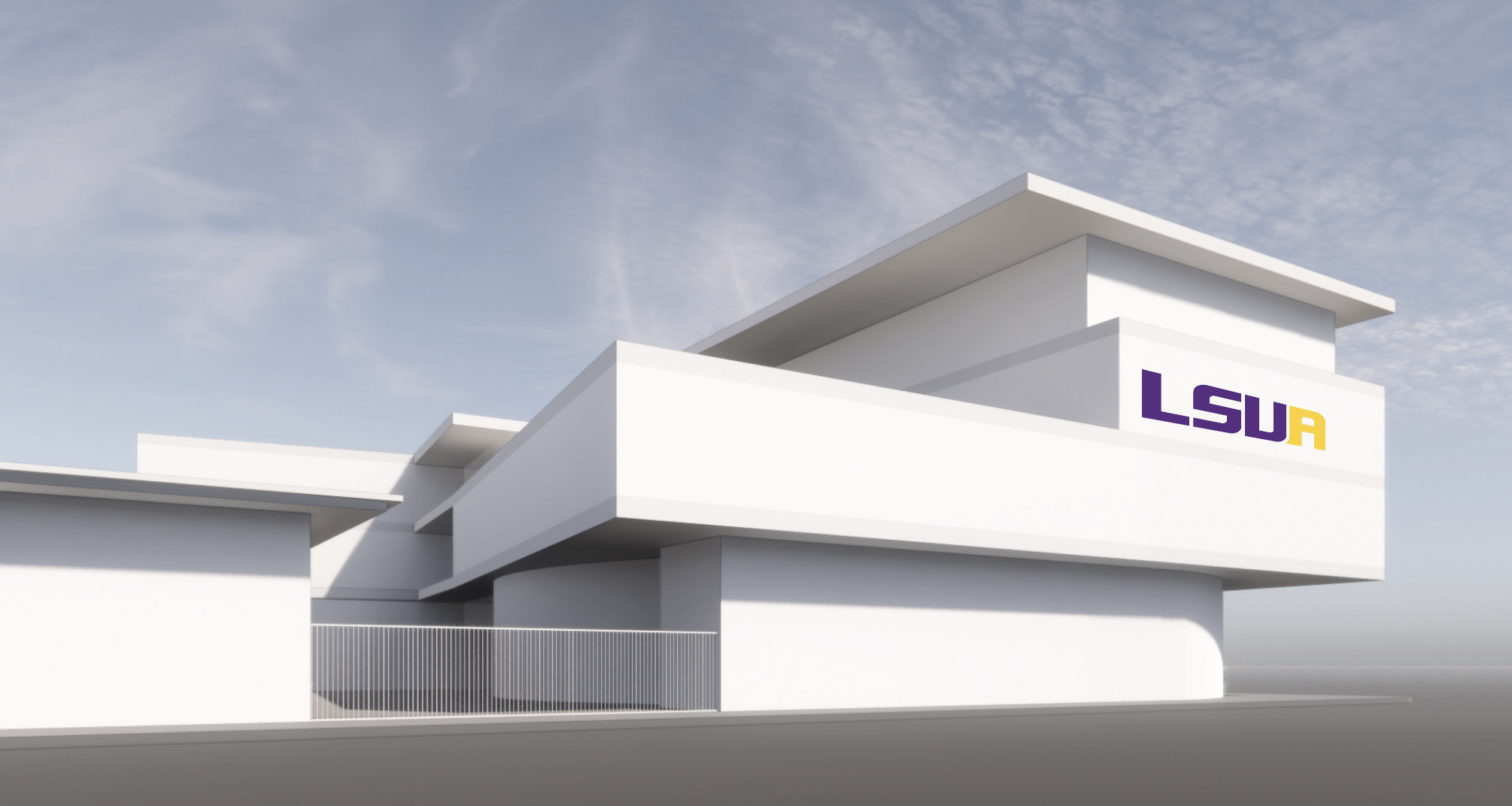Bringing Surgical Technology Training to Central Louisiana
October 15, 2024
Meet Gracie Chatman: First to Pursue LSUE’s Surg Tech Program at LSUA

Gracie Chatman from Oberlin, Louisiana, is first in her family to pursue a healthcare degree and career.
In all operating rooms, there are surgical technologists who work elbow-to-elbow with surgeons to make sure they have the right instruments at the right time, and everything in and near the patient remains sterile. The workforce demand for surgical technologists is high and rising, especially at smaller hospitals and in rural areas. Now, LSU Eunice and LSU Alexandria are leveraging the strength of the statewide university to bring surgical technology training to Central Louisiana.
“Rather than building a new program from scratch, we can partner,” said Renee Guillory, director of the surgical technology program at LSUE, now in its seventh year.
Starting this semester, LSUE surgical technology students can attend lectures and do labs in LSUA’s Allied Health Building in downtown Alexandria and continue to complete their clinical rotations with hospital partners in Central Louisiana, such as Rapides Regional Medical Center, CHRISTUS St. Frances Cabrini Hospital, and Central Louisiana Surgical Hospital. Prerequisites for the LSUE surgical technology program can also be completed at LSUA, offering local students who can’t travel as far as Lafayette or Shreveport a proven, one-year pathway to well-paid jobs.
“Our students are usually employed one or two months before they graduate,” Guillory said.
Gracie Chatman from Oberlin, Louisiana, is one of the first students in the new LSUE program on the LSUA satellite campus. She was able to complete six of the 11 surgical technology prerequisites already at Oberlin High School thanks to dual enrollment with LSUE.

Gracie Chatman and Kolby Bernard are the first LSUE surgical technology students to train on the LSUA campus.
“I’m so excited, and I think I’m going to like trauma,” said Chatman, who will complete rotations in as many as 11 surgical specialties, including trauma, general surgery, cardiothoracic, transplant, and plastic surgery, obstetrics and gynecology, neurology, orthopedics, ophthalmology, and otolaryngology. “Already week two, we went on a field trip to observe surgeries in Opelousas and I watched a gross hematoma explode, but it was awesome. It gave me motivation—the good we’ll be able to do.”
Chatman said she is drawn to surgical technology because she wants to work in a fast-paced environment where no two days or patients are the same.
“I’m an adrenaline junkie,” Chatman said. “I like to be busy.”
Right now, busy means going to school five days a week while working three days a week as a valet at Coushatta Casino Resort in Kinder, Louisiana. Chatman is the first in her family to pursue a healthcare degree and career.
“ My mom stays at home and my dad works in the oil field and goes offshore,” she said. “I have a whole bunch of blue collar and farmers in my family. And then there’s me, medical. ”
Chatman’s grandfather is a cattle farmer.
“He has diabetes, and I help him monitor his blood sugar,” Chatman said. “We got him a medical device that’s an implant that goes into his arm, but he’s hard-headed, like me, so he calls me to do it for him.”
Chatman said LSUE’s expansion of its surgical technology program to LSUA made her career choice much easier.
“It’s just closer to where I live, an easier drive,” she said. “And it’s important to me to stay in this area. I’m very close to my family, and after I finish the surgical technology program at the end of next summer, I would like to work at Rapides Regional Medical Center in Alexandria. Ever since my grandfather went to the hospital there when I was younger, I’ve always wanted to work toward that.”
Her biggest challenge in the surgical technology program so far has been sterile gloving and gowning.
“It’s just really hard,” Chatman said. “You have to put on your gloves with your hands covered by the gown, so the gloves remain sterile, and the gowns are large or extra-large, so it’s like having a big blanket on. But there are ways to make it easier. It just takes practice.”
Program director Renee Guillory aims to have 10 surgical technology students on the LSUA satellite campus by next year.

“LSU recognized the need and demand, and by extending the LSU Eunice surgical technology program to LSU Alexandria, we can now collaborate to be part of a solution that will have an immediate impact in filling job openings within our organization—something our community needs.”—Katlin Bolton, chief nursing officer at Rapides Regional Medical Center
“Most people don’t realize how important surgical technology is,” Guillory said. “You can’t do surgery without surgical technologists, and we’re the only team member in the operating room who learns everyone else’s job, so we can stay one step ahead and always protect the patient.”
“We need to know everybody’s roles in the operating room and everything a surgeon does,” Chatman said. “If they’re going to clamp a tissue, we have to know what to give them and anticipate their needs for the surgery to go as smoothly as possible.”
Clinical partner Rapides Regional Medical Center in downtown Alexandria has multiple job openings for surgical technologists.
“There is a great need for surgical techs, just like there’s a great need for all healthcare specialties,” said Katlin Bolton, chief nursing officer at Rapides Regional Medical Center. “Our population is aging, and the acuity of sickness is increasing. While we can provide on-the-job training, that will never be enough to meet the workforce gap.”
“LSU recognized the need and demand, and by extending the LSU Eunice surgical technology program to LSU Alexandria, we can now collaborate to be part of a solution that will have an immediate impact in filling job openings within our organization—something our community needs,” Bolton continued. “Simply having the program here helps raise awareness of surgical technology as a career possibility, which is very important.”

The LSUA Allied Health Building in downtown Alexandria, home of the LSUE surgical technology satellite program and the LSU Health New Orleans dental hygiene program, is being updated thanks to a $3 million federal grant. It will be the heart of the growing LSUA Health Education Campus (pictured here in an architectural rendering), which aims to double the current number of graduates in nursing and allied health. The $40 million expansion will feature multiple virtual reality and simulation teaching labs and allow LSUA to launch new programs for licensed practical nurses and cardiovascular ultrasound techs.
Learn MORE ABOUT LSU Eunice’s surgical technology program
Next Steps
Let LSU put you on a path to success! With 330+ undergraduate programs, 70 master's programs, and over 50 doctoral programs, we have a degree for you.


